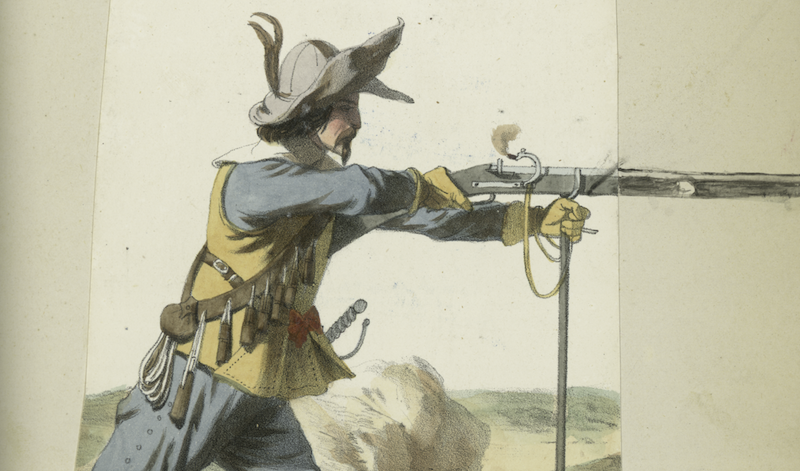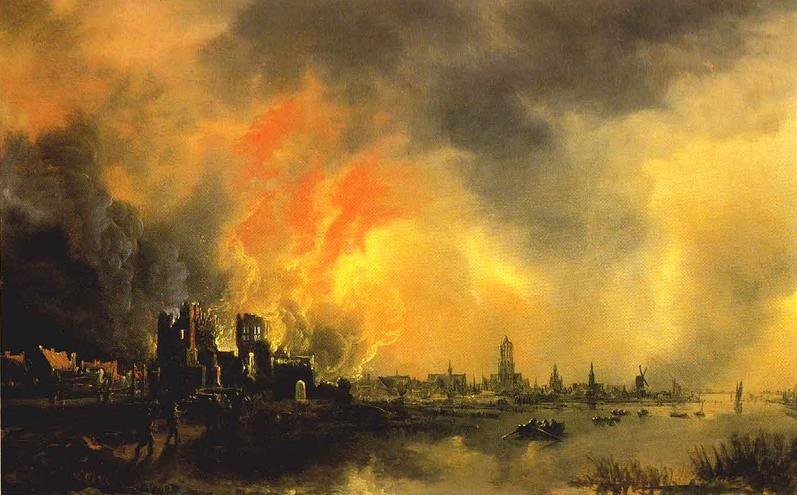This 1579 murder of a minor lord in rural France is great inspiration for a murder mystery. The case looks cut-and-dried at first, but the deeper the you look, the more complicated it becomes. An adventure based on the case may culminate in an ethical quandary and a readymade hook leading to your next adventure!

April was unusually cold in southern France in 1579, and in the countryside near Romans-sur-Isère, the peasants were restless. Punishingly high taxes and the depredations of the Wars of Religion left them few options besides open revolt. When they armed themselves and declared they wouldn’t pay taxes until their grievances were addressed, no one should have been surprised.
The nobles needed to plan their response. So they gathered at the chateau of one of the number, a Monsieur Dorbain. The peasants got wind of the meeting and feared a plot. They marched on Dorbain’s chateau in force. The nobles fled into the night.
Monsieur Dorbain was furious. After the peasants dispersed and he could return home with his men, he summoned three neighbors. These neighbors were poor tenant farmers who’d often worked on Dorbain’s estate. Dorbain questioned them with the help of another noble friend, Monsieur Dubois. The farmers denied recognizing any of the people who’d marched on Dorbain’s chateau.
Here, I’m going to quote from a letter a notary wrote later about what he’d heard of the incident:
“But Dorbain, knowing that they (the laborers) had seen several gentlemen gathered in the said place (his house) and that they knew the secrets of that house, had them led out of the house and beaten, leaving them for dead. One of them got away, mortally wounded. He died two days later, but before (dying) he revealed everything that had happened and that during their murder they had recognized Monsieur Dubois and certain of Monsieur Dorbain’s other neighbors.”
When word got out about the three murders, another peasant mob marched on Dorbain’s chateau. Once again, Dorbain fled. The mob looted his house, ate his food, drank his wine, and then burned down the chateau for good measure. Then the peasants marched on Dubois’ house and burned it down too. On April 19th, Dorbain returned to his house to inspect the damage. A peasant armed with an arquebus saw him standing in the snow and shot him dead.

If you’re looking to make a murder mystery out of this story, this is the logical place to insert the PCs. They’re sent to investigate the murder of Monsieur Dorbain. They don’t know the story above, just that a noble was killed. The PCs might be hired by a friend of Dorbain in far-off Paris. They might be dispatched by the legitimate authorities in Grenoble. They might even be hired by Dorbain’s accomplice, Monsieur Dubois.
This is also a great time to introduce another player in this story: the royal judge of Romans-sur-Isère, Antoine Guérin. Though Guérin was not himself a noble, he was the puppet master who truly ran things in Romans-sur-Isère. He was very interested in protecting the power of the nobility from the common rabble, even though his own father had started life as a country peddler.
Guérin wrote a letter, possibly to Catherine de Medici, the mother of the King, describing Dorbain’s murder. But in Guérin’s version, the story changed to portray the noble Monsieur Dorbain in a better light. In Guérin’s telling, the three dead peasants were part of the mob that marched on Dorbain’s chateau. Their killing was self-defense. With this change, Dorbain’s killer is no longer a vigilante righting a terrible wrong the only way he can. He’s a common murderer, nothing more. Guérin would no doubt be delighted to tell this same story to your PCs, perhaps even riding out to meet them as soon as they arrive.
If the PCs aren’t fooled by Guérin’s half-truths, their investigation will probably take them to Dorbain’s burned country estate. Eyewitnesses among the peasantry can probably direct them to Monsieur Dubois (the friend whose house was also burned) and even to the man who sold the murderer his arquebus: an arms merchant from the weapons-manufacturing town of St.-Étienne-en-Forez. Any local peasant should be able to tell the party the story of the two mobs and the three unprovoked murders. It’s a tight-knit community, so everyone probably knows who shot Dorbain. Getting them to admit it is just a matter of applying the right leverage.
Which brings us to the moral quandary. Killing Monsieur Dorbain was definitely illegal. But was it wrong? Dorbain was a monster. His tenants are better off without him. Once the PCs know the whole story, are they still going to be willing to arrest the killer, knowing he’ll probably be tortured and hanged? If the PCs side with the peasants on this one, ask them about Dubois. Monsieur Dubois, Dorbain’s noble friend, also lost his house to a mob, but he’s still alive. Does he deserve further justice?
Finally, there is the matter of one stray line from the notary’s letter: that the laborers were killed, in part, because they “knew the secrets of that house”. I’ll be straight up with you: I have no idea what that means. But in a gaming context, it sure sounds bad. Decadent nobles willing to kill to preserve their secrets are probably trying to cover up a ghoul cult, human sacrifice, or something nasty like that. You couldn’t ask for a better hook to your next adventure.
–
Source: Carnival in Romans by Emmanuel Le Roy Ladurie, translated from French by Mary Feeney







